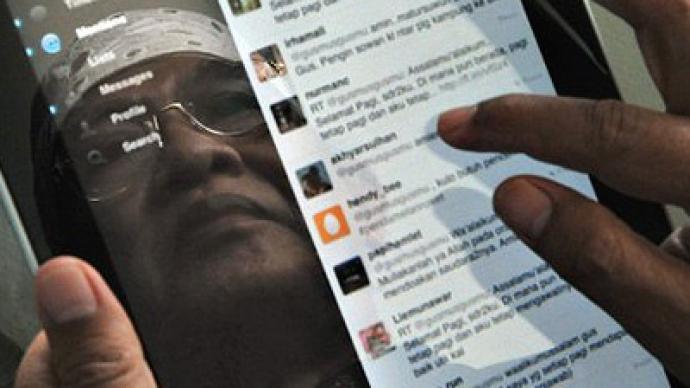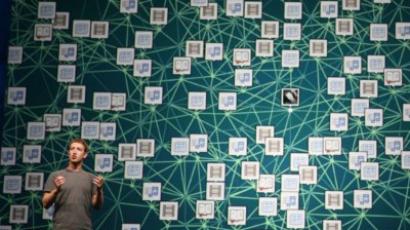Freedom fears over Twitter’s by-country ‘censorship’

Micro-blogging service Twitter has announced that it will filter tweets on a country-by-country basis due to differing legal demands. Critics were quick to accuse the company of attacking freedom of online speech to make extra profit.
Individual tweets can now be shown in some countries but blocked in others, the internet giant said in a blog post on Thursday. The goal is to comply with legislation under different jurisdictions, while not deleting offending content globally. Twitter offers the example of France and Germany, where public pro-Nazi statements are banned.“Until now, the only way we could take account of those countries’ limits was to remove content globally. Starting today, we give ourselves the ability to reactively withhold content from users in a specific country — while keeping it available in the rest of the world,”the statement says.Twitter adds that it will do its utmost to keep its filtering actions transparent and notify users, whose tweets are being blocked, of why this is being done.Coming at a sensitive time shortly after the global internet strike against the SOPA/PIPA bills, deemed a bane on online freedoms, the move could not but draw criticism over ‘self-censorship’. Forbes contributor Mark Gibbs called it ‘social suicide’ on Twitter’s part, going on to speculate that the company now probably filters all new tweets for keywords like “Nazi” and automatically bans those deemed suspicious.Indeed, by-country filtering would appeal to countries like China, which recently launched a crackdown on national micro-blogging sites to force their users to disclose their real names, so that authorities could hold them accountable for “spreading harmful rumors.”And with Twitter having been used to coordinate protests in Arab countries during last year’s public uprisings, the vivid image of a greedy corporation serving repressive regimes to make profit is all too easy to imagine.However the concern may be overblown. Twitter says its new policy is an alternative to completely deleting tweets when a government demands it. The company has to comply with national laws to operate in a country, be it Germany’s ban on praising Nazism, American anti-piracy DMCA provisions or Thailand’s legislation protecting the royal family. In the past, Twitter admits it did remove some posted tweets.Regional blocking is not done automatically – officials have to file a request to remove a tweet, then a legal review of it will follow in accordance with national laws. Frankly speaking, trying to put a lid on sensitive info this way is just about as efficient as trying to stop torrent trackers from pirating films.On the other hand, this new partial option may become an incentive for repressive regimes to up the ante in an attack on freedom of speech, since they will expect a quieter public outcry over such action.It remains to be seen how much publicity damage Twitter will suffer. The internet community in general is very sensitive where its freedoms are concerned, and pledging that “tweets must flow” will hardly be enough to convince it that Twitter is not simply abusing its popularity.
Aaron Schwartz, the founder and executive director of Demand Progress.org, an organization campaigning against Internet censorship, thinks the newly introduced measure will hardly achieve its goal of censoring Twitter.“What`s nice about Twitter is that it is a real time service. The government is going to be slower than Twitter almost always. By the time you got a court order asking someone to take down a tweet and by the time Twitter reviews it and it goes through all the policies it will probably be past and everyone on Twitter would have read it already and would have retweeted it hundreds of times.”Schwartz believes that Twitter’s policy of not deleting inappropriate messages, but highlighting them as “censored by the government” will put a lot of pressure on the authorities. He also thinks that eventually free speech will overcome censorship.“Ultimately free speech is going to win. People realize they have this power now. They can win changes not only from companies, but from governments.”














